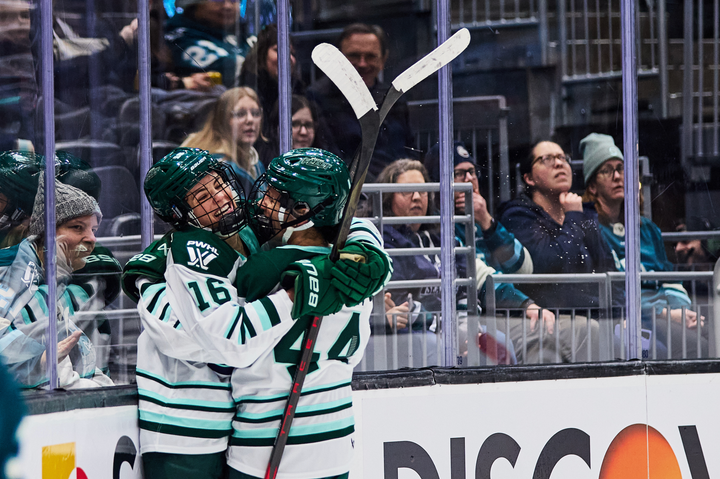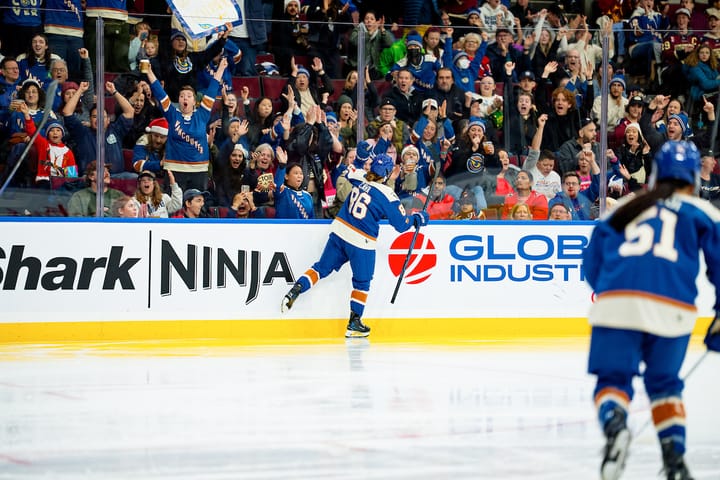An introduction to the Universiade
Russian Olympians and Canadian national development players headline one of women's hockey's most curious tournaments.
Taking place every two years, the Winter Universiade is a multi-sport event bringing together thousands of student-athletes from over 50 countries. Governed by the Fédération internationale du sport universitaire (FISU), the 2017 edition will be hosted in Almaty, Kazakhstan. Though the event officially runs from Jan. 29 to Feb. 8, this year's women's hockey tournament begins early on Jan. 28 and finishes on Feb. 6.
All competitors at the Universiade must be between the ages of 17 and 28 and either be registered full time in a valid post-secondary program or have graduated from one within the past year. This doesn't mean that they're required to represent their school in their sport, though all federations (and the specific governing bodies therein) have their own criteria for selecting their delegations.
Women's hockey made its Universiade debut in 2009 in Harbin, China. Canada won the initial three tournaments (2009, 2011, 2013) before Russia claimed the top spot at the most recent edition, in 2015.
Notable past participants include Ann-Sophie Bettez (CAN/Les Canadiennes de Montréal), Iya Gavrilova (RUS/Calgary Inferno), Nana Fujimoto (JPN/Vortex Sapporo), and Paige Harrington (USA/Buffalo Beauts), to name just a few.
Most delegations require athletes and staff to at least partially pay their own way, and for many competitors from stronger countries this will be their last opportunity to represent their national team. For players from weaker hockey countries the Universiade is a once-in-a-lifetime chance to skate alongside the sport's elite, and despite frequent blow-out scores, the atmosphere is undeniably supportive.
Teams
This year's field includes Canada, China, Great Britain, and Kazakhstan in Group A, with Japan, Russia, and the United States forming Group B.
Canada: The Canadian entry consists of a U Sports (formerly CIS) all-star squad, excluding players who have participated in major tournaments for the senior national team. It is highlighted up front by St. Thomas' Kelty Apperson, who has a 12-14-26 record in 19 games, and Ottawa's Mélodie Bouchard, who boasts a 1.44 point-per-game average in a tough RSEQ conference. The blue line is led by team captain Katelyn Gosling, a defender with the Calgary Inferno who graduated from Western University last spring, while goaltender Valerie Lamenta of Guelph is the reigning CIS Player of the Year and leads the country in save percentage, goals-against average, and wins. Twenty of the 22 players selected attended Hockey Canada's National Development Summer Showcase in August as part of Team CIS, and several have been individually invited to Hockey Canada camps in the past.
China: China won a silver medal at the inaugural women's hockey tournament in Harbin, but didn't compete in 2011 or 2013. It made its return in 2015 when it finished fourth behind Japan after beating the United States and Spain in the preliminary round. The Chinese federation has stated that it intends to use these games to encourage youth sport in anticipation of the Beijing 2022 Winter Olympics. While its roster is not currently available, past results indicate that China could surprise in a field that appears fairly even behind Canada and Russia.
Great Britain: Team GB competed in the first three women's hockey tournaments, finishing sixth in 2009 and fifth in both 2011 and 2013, all in six-country fields, but did not ice a team at the most recent edition. This year's roster features several players who skate for the senior national team (currently in Div.II Group A) as well as many who have represented Great Britain at the U18 level, but the amount of playing experience on the squad ranges from five to 17 years. Forward Saffron Allen was an alternate captain during the second preliminary round of Olympic qualifying in November (GB did not advance) and will be looked to as a leader on the Universiade team.
Kazakhstan: Though Kazakhstan may seem like an outlier in women's hockey, it once appeared to be a country on the verge of great things. The Kazakh women finished eighth at the 2002 Olympics in Salt Lake City, then spent the better part of the next decade alternating between the top and second divisions of the World Championship. Despite a sixth-place finish at Worlds in 2009, they failed to qualify to the Vancouver 2010 Games, and have since dropped steeply in the rankings. Kazakhstan finished sixth of seven teams at the 2015 Universiade after dominating hosts Spain 10-0. Their roster for this tournament is nowhere to be found, but we're cheering for them anyway.
Japan: Team Japan’s adventures at the Universiade have been a steady show of advancement. After a 15-0 semifinal loss to Canada in 2013, they took bronze in 2015, and will be looking to continue the upward trend. Twenty-two players are heading to Kazakhstan: two goalkeepers, seven defensemen, and 13 forwards. The players, aged 18-24, represent seven different teams from across the Japan Women's Ice Hockey League. The Seibu Princess Rabbits, headquartered in Tokyo, lead the team in representatives with 10.
Russia: Team Russia is sending lots of familiar names from the senior team, including Olympic veterans Olga Sosina and Alexandra Vafina. Additionally, 11 players competed in the inaugural WHL All-Star Game on January 17. It would appear Russia is focused on getting Olympic roster probables strong competition. “For the successful preparation of the Russian team for the Olympic Games 2018 year requires us to play the widest possible number of games against the United States and Canadian teams at any level,” said Russian forward Ludmila Belyakova for The Ice Garden. Team Russia open against Team USA on Sunday, January 29th. Russia will face the United States and Canada again for the 2017 World Championships in March.
United States: Team USA is represented by players from the ACHA, a university club league. The United States made its Universiade debut in 2011, finishing fourth, and saw its best result in 2013 when it won bronze over Japan. This year's roster features three returnees from the 2015 squad that finished fifth. The team is coached by two-time Olympian Shelley Looney and will be led offensively by 2016 ACHA Player of the Year Brittani Lanzilli.
Schedule
All games (excluding relegation) will be streamed live at http://www.livefisu.tv/.





Comments ()